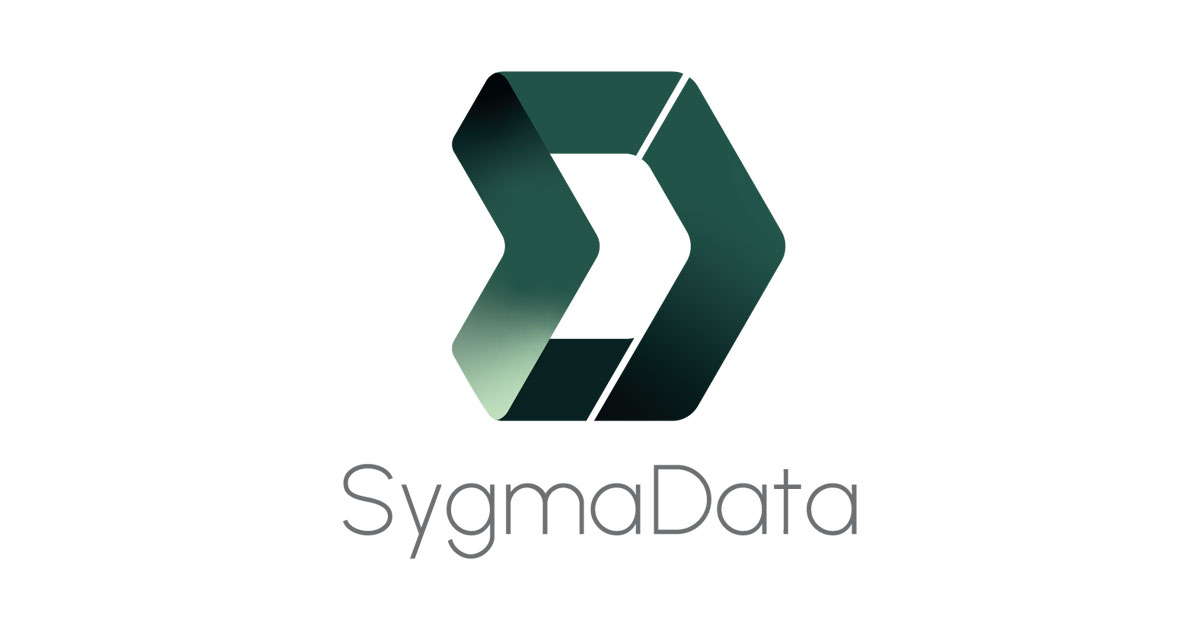Download the PDF document here: The specific challenges of data management in switzerland for DSO and Utilities
The specific challenges of data management in Switzerland for energy DSO and utilities
Discover the key data management challenges faced by Swiss Distribution System Operators (DSOs) amid regulatory shifts, cybersecurity demands, and digital transformation. Learn how utilities navigate Local Energy Communities, smart grid technologies, and evolving compliance requirements in Switzerland’s energy sector.
Table of Contents
Integration of Local Energy Communities. 5
Challenges in Data Management 5
Data Exchange and Integration. 5
Cybersecurity and Compliance. 6
Flexibility and Operational Challenges. 6
Challenges in Data Management 7
Data Exchange and Integration. 7
Cybersecurity and Compliance. 7
Flexibility and Operational Challenges. 7
Advanced Distribution Management Systems. 9
Smart Meters and Intelligent Measuring Systems. 9
Overview of Data Management Challenges. 11
Market Trends and Strategies. 11
Adoption of Advanced Distribution Management Systems (ADMS) 13
Compliance and Blockchain Technology. 13
Overcoming Resistance to Change. 13
summary
Data management presents significant challenges for Distribution System Operators (DSOs) in Switzerland, particularly as the energy landscape evolves in response to regulatory changes and technological advancements. Notably, the integration of Local Energy Communities (LECs) is reshaping the operational landscape, as these communities encourage citizen participation in energy production and consumption while introducing complexities related to data sharing and infrastructure management. The need for effective and secure data management practices has become paramount to ensure the efficiency and reliability of energy distribution systems in a rapidly changing environment.[1][2][3].
The Swiss regulatory framework governing DSOs emphasizes transparency, impartiality, and compliance with data protection laws, aiming to create a fair environment for all stakeholders involved. However, these regulations also complicate the sharing of data across different systems and participants, which is essential for optimizing operational efficiency. The establishment of protocols that allow for seamless data exchange while protecting sensitive information remains a critical challenge for DSOs in Switzerland.[4][5][6].
As digitalization accelerates within the energy sector, cybersecurity has emerged as a pressing concern. DSOs are tasked with implementing robust measures to safeguard data against threats while adhering to legal requirements, particularly in light of the forthcoming Information Security Act set to be fully implemented in January 2024. Balancing the need for innovation and compliance poses ongoing challenges, especially for smaller operators that may lack the necessary resources to adopt advanced data management technologies.[2][7][8].
In summary, the specific challenges of data management faced by Swiss DSOs are multifaceted, encompassing technical, regulatory, and operational dimensions. Addressing these challenges is crucial for enhancing the resilience and effectiveness of the energy distribution sector, ultimately supporting the broader transition to a more sustainable and integrated energy system in Switzerland.[9][10][11].
Regulatory Framework
The regulatory framework governing Distribution System Operators (DSOs) in
Switzerland is designed to ensure transparency, objectivity, and impartiality throughout the procurement processes and operational activities. A key feature of this framework is the emphasis on preventing conflicts of interest, corruption, and negative impacts on competition, thereby fostering a fair environment for all stakeholders involved[1][12].
Key Regulatory Features
The regulations require that all tenderers be treated equally at every stage of the procurement procedure, which includes the obligation to safeguard confidentiality and uphold minimum standards concerning workforce health and safety, equal pay, compliance with employment laws, environmental protection, and cybersecurity. These standards are aligned with the Information Security Act, which is set to be fully implemented on January 1, 2024[12][13].
Integration of Local Energy Communities
With the introduction of new electricity laws, the role of DSOs is evolving, particularly through the integration of Local Energy Communities (LECs). These communities present both opportunities and challenges for DSOs as they seek to enhance citizen involvement in energy production and sales. The increasing complexity of integrating distributed energy technologies necessitates a robust regulatory framework that can support innovative solutions while ensuring the stability and efficiency of the grid[1][9].
Challenges in Data Management
Data management presents several challenges for Distribution System Operators (DSOs) in Switzerland, particularly in the context of the evolving energy landscape and regulatory frameworks. One of the most pressing issues is the need for secure and efficient data infrastructure to manage complex energy flows and facilitate data sharing among various stakeholders[2][3]. This is essential as the integration of Local Energy Communities (LECs) becomes increasingly prominent in enabling citizen participation in energy production and consumption[3].
Data Exchange and Integration
A crucial aspect of data management is the effective exchange of data between disparate information systems utilized by different stakeholders, which is vital for operational efficiency[4]. The regulatory framework necessitates transparency and impartiality, which complicates data sharing while ensuring compliance with data protection laws[5][6]. The challenge lies in establishing protocols that allow seamless data transfer while safeguarding sensitive information.
Cybersecurity and Compliance
With the rise in digitalization, cybersecurity has emerged as a significant concern.
DSOs must implement robust technical and organizational measures to protect data, ensuring compliance with legal requirements[2][7]. As the Information Security Act of 2024 mandates adherence to specific cybersecurity obligations, DSOs face the challenge of updating their IT systems to meet these standards while also providing adequate training for their personnel[7][8].
Technological Adaptation
The advancement of data science technologies offers opportunities for analyzing large volumes of data but also poses challenges for smaller companies that may lack the resources to leverage these tools effectively[13][11]. The need for investment in user-friendly cloud platforms and other data management technologies is essential, yet the cost and complexity can deter smaller DSOs from adopting necessary innovations[14].
Flexibility and Operational Challenges
In addition to technical and regulatory hurdles, DSOs must contend with operational challenges that arise from the need for greater flexibility in their operations[8]. As voltage levels and other variables affect the management of energy distribution, there is an increasing demand for data-driven decision-making processes to adapt to changing conditions and optimize energy flows.
Challenges in Data Management
Data management presents several challenges for Distribution System Operators (DSOs) in Switzerland, particularly in the context of the evolving energy landscape and regulatory frameworks. One of the most pressing issues is the need for secure and efficient data infrastructure to manage complex energy flows and facilitate data sharing among various stakeholders[2][3]. This is essential as the integration of Local Energy Communities (LECs) becomes increasingly prominent in enabling citizen participation in energy production and consumption[3].
Data Exchange and Integration
A crucial aspect of data management is the effective exchange of data between disparate information systems utilized by different stakeholders, which is vital for operational efficiency[4]. The regulatory framework necessitates transparency and impartiality, which complicates data sharing while ensuring compliance with data protection laws[5][6]. The challenge lies in establishing protocols that allow seamless data transfer while safeguarding sensitive information.
Cybersecurity and Compliance
With the rise in digitalization, cybersecurity has emerged as a significant concern. DSOs must implement robust technical and organizational measures to protect data, ensuring compliance with legal requirements[2][7]. As the Information Security Act of 2024 mandates adherence to specific cybersecurity obligations, DSOs face the challenge of updating their IT systems to meet these standards while also providing adequate training for their personnel[7][8].
Technological Adaptation
The advancement of data science technologies offers opportunities for analyzing large volumes of data but also poses challenges for smaller companies that may lack the resources to leverage these tools effectively[13][11]. The need for investment in user-friendly cloud platforms and other data management technologies is essential, yet the cost and complexity can deter smaller DSOs from adopting necessary innovations[14].
Flexibility and Operational Challenges
In addition to technical and regulatory hurdles, DSOs must contend with operational challenges that arise from the need for greater flexibility in their operations[8]. As voltage levels and other variables affect the management of energy distribution, there is an increasing demand for data-driven decision-making processes to adapt to changing conditions and optimize energy flows.
Technological Solutions
Advanced Distribution Management Systems
In Switzerland, Distribution System Operators (DSOs) are increasingly turning to Advanced Distribution Management Systems (ADMS) to address the complexities of modern electrical networks. These integrated platforms allow operators to manage all applications, solutions, and related information from a single interface, enhancing operational efficiency and effectiveness.[15] By implementing ADMS, utilities can minimize the cost of ownership, optimize capital expenditures (CAPEX), reduce power losses, and improve overall network visibility and transparency. This leads to improved worker safety and reduced outage times, thereby increasing the reliability of electrical service provision.[15][16].
Smart Meters and Intelligent Measuring Systems
A significant aspect of the technological advancements in Switzerland’s energy sector is the deployment of Smart Meters. These intelligent measuring systems are crucial components of the federal government’s Energy Strategy 2050, designed to enhance energy efficiency and save electricity. Smart Meters facilitate better data collection and enable consumers and utilities to monitor energy consumption in real-time, contributing to more informed decision-making.[17][18].
Data Visualization Tools
As the volume of data generated from various sources continues to grow, DSOs are also investing in data visualization tools to aid decision-making processes. These tools allow for the systematic and timely analysis of data related to the current state of transmission grids. By visualizing this data, operators can make faster and better-informed decisions, improving the operational resilience of the grid and enhancing the ability to respond to network challenges.[17].
Data Science Applications
With advancements in data science, smaller companies within the DSO sector are increasingly able to leverage large datasets for operational analysis. The development of user-friendly tools and cloud services has democratized access to data science, enabling even small operators to evaluate and analyze significant volumes of data. Swissgrid, for example, has begun implementing pilot projects utilizing data science to improve operational insights and is looking to further develop this capability in the future.[19].
Challenges and Restraints
Despite these advancements, DSOs face significant challenges, particularly regarding data privacy and cybersecurity. The adoption of new technologies often meets resistance from stakeholders who are concerned about the implications of data sharing and the potential for cyber threats. As utilities move towards more integrated and digitized systems, addressing these concerns becomes paramount to ensure safe and effective operations within the energy sector.[15][13][12].
Case Studies
Overview of Data Management Challenges
The management of data within Distribution System Operators (DSOs) in Switzerland has been significantly impacted by various challenges, notably resistance to change and the adaptation to new technologies. These challenges have been documented through extensive research that highlights the intricate dynamics of data exchange and management between Transmission System Operators (TSOs) and DSOs in the context of Switzerland’s energy landscape[6].
Illustrative Use Cases
The Project Team has analyzed several relevant use cases that demonstrate the complexities of data management. These case studies illustrate the need for effective data exchange protocols and the potential economic value that can be realized through improved coordination between TSOs and DSOs. Notably, the research has indicated that current interactions primarily address repeating issues such as planned outages and grid reinforcements, suggesting that while there is some level of collaboration, it remains insufficient for maximizing economic benefits[7][20].
Adoption of Data Science
Recent advancements in data science have enabled DSOs to evaluate and analyze large volumes of data more effectively. This shift is crucial for smaller companies as well, as the democratization of data tools and technologies—coupled with enhanced computing performance and reduced data storage costs—allows for broader accessibility and usability[10][21]. Swissgrid, for example, has engaged in multiple pilot projects leveraging data science to optimize operations and is now focused on further development in this area[22].
Market Trends and Strategies
The period from 2019 to 2022 has seen major players in the DSO sector adopting strategies centered on partnerships and new product launches. These strategies have been instrumental in driving innovation and expanding their customer base[23][24]. However, the challenge remains for many DSOs to manage the integration of resources efficiently, especially given the high entry costs and weak incentives for participation[25]. This ongoing challenge emphasizes the need for a more collaborative approach to data management across the industry, ensuring that all stakeholders can effectively contribute to and benefit from advancements in technology and data analytics.
Future Trends
As the landscape of data management for Distribution System Operators (DSOs) in Switzerland evolves, several key trends are emerging that will shape the future of this sector.
Adoption of Advanced Distribution Management Systems (ADMS)
One significant trend is the increasing adoption of Advanced Distribution Management Systems (ADMS) across various industries, including energy, manufacturing, and transportation.[26][27] The shift towards Industry 4.0 is driving this adoption, with businesses recognizing the need for sophisticated data analytics to optimize operations and improve service delivery.[21][18] In the energy sector, particularly, ADMS solutions are being implemented to enhance grid management and integrate renewable energy sources more effectively, addressing the growing demand for sustainable energy solutions.[21]
Data Science Integration
Another trend is the integration of data science in managing large volumes of operational data. As technological advancements reduce costs and improve accessibility, even smaller companies can leverage data science tools to analyze and utilize
data effectively. This democratization of data capabilities enables DSOs to enhance decision-making processes and operational efficiency, thereby fostering innovation within the industry.[23]
Compliance and Blockchain Technology
The growing emphasis on compliance and data integrity is also leading to the exploration of blockchain technology among DSOs. Companies are increasingly deploying private blockchains to manage internal applications securely while maintaining compliance with data regulations. This includes controlling participant access and handling transaction content efficiently, ensuring that data remains accurate and secure over time.[5][3] The potential for blockchain to provide transparency and traceability could transform data management practices within the sector.[2]
Overcoming Resistance to Change
Despite these advancements, resistance to change remains a challenge for DSOs in Switzerland. Adapting to new technologies and integrating them into existing systems is critical for future success. As DSOs begin to embrace digital transformation, the focus will need to be on creating a culture that is receptive to innovation, thereby facilitating smoother transitions and greater competitiveness in the market.[26]
References
[1]: New challenges for DSOs in the energy transition
[2]: Research & development – Swissgrid
[3]: Business structure of electricity distribution system operator and …
[4]: Unveiling the Swiss Data Protection Act (DPA) – BigID
[5]: Drivers for Advanced Distribution Management Systems
[6]: Local Electricity Communities CEL in Switzerland – Softcom
[7]: Future visions and technologies for distribution grids – SATW
[8]: Data management crucial to system operation – E.DSO white paper
[9]: Prospects and barriers for microgrids in Switzerland – ResearchGate
[10]: [PDF] TSO – DSO DATA MANAGEMENT REPORT – ENTSO-e
[11]: TSO-DSO Interaction in Switzerland
[12]: Turning grid challenges into opportunities | Arthur D. Little
[13]: Advanced Distribution Management System (ADMS) from Oracle
[14]: Data Protected Switzerland | Insights – Linklaters
[15]: Accelerating the renewable energy sector through Industry 4.0
[16]: Advanced Distribution Management System Market Analysis
[17]: Advanced Distribution Management System (ADMS) Market Size
[18]: Advanced Energy Management System (AEMS) – GE Vernova
[19]: Advanced Distribution Management Systems (ADMS)
[20]: Data Regulation in Switzerland’s Financial Sector – Securiti.ai
[21]: Switzerland’s FADP: The Scope, 2023 Changes, and How to Comply
[22]: New Swiss Federal Act on Data Protection | PwC Switzerland
[23]: Energy data management – Swissgrid
[24]: A Wakeup Call – The New Swiss Data Protection Act Enters Into …
[25]: Flexibility – barriers and challenges in Europe
[26]: Swiss startup offers demand side management software to manage …
[27]: Understanding ADMS and Smart Grids – Energy Evolution Conference



